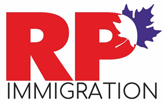Thinking about moving to Canada? One of the first questions most newcomers ask is: “Can I afford to live there?” It’s a smart question. Canada offers a great quality of life, but it’s important to understand the cost of living before making the big move. From housing and groceries to healthcare and transportation, expenses can add up fast. Let’s break it all down so you can be better prepared for your new life in Canada.
Understanding the Basics of Living Expenses in Canada
The cost of living in Canada varies greatly depending on where you live. Large cities like Toronto and Vancouver are known for being the most expensive. On the flip side, smaller cities such as Winnipeg or Halifax tend to be more budget-friendly.
It’s kind of like comparing the price of dining out in a fancy downtown restaurant versus a cozy local café — same country, different price tiers. That’s why your location plays a big role in how much you’ll spend on day-to-day living.
Major Monthly Expenses to Expect
Here’s a look at what you’ll probably spend each month as a newcomer in Canada:
- Housing: Rent can range from $800/month for a one-bedroom in smaller cities to $2,300+ in big cities like Vancouver.
- Utilities: Electricity, heating, water, and internet could add another $150–$250/month, depending on usage and location.
- Groceries: A family of four might spend between $800–$1,000/month. A single person could get by with $300–$400.
- Transportation: Monthly transit passes range from $80–$160. Owning a car? You’ll need to budget for insurance, gas, and maintenance.
- Childcare: Costs vary widely from province to province, from as low as $200/month (thanks to government subsidies) to over $1,000/month.
- Phone and Internet: Expect to pay between $50–$100/month per mobile plan, and up to $80/month for home internet.
All in, many newcomers find their total monthly expenses land somewhere between $2,000 and $4,000, depending on family size and location.
How Housing Prices Can Make or Break Your Budget
Let’s be honest—housing is the biggest chunk of your budget. Rental prices differ not only by province but also by neighborhood. In major cities, you’ll pay more to live downtown, but you might save on transportation by walking or biking to work.
Many newcomers begin with rental accommodations, which gives them flexibility as they learn about their new surroundings. It’s also common to share housing initially to cut down on costs — especially in cities where housing demand is high and vacancies are low.
Average Rent Across Canada
- Toronto: 1-bedroom apartment → $2,300+
- Vancouver: 1-bedroom apartment → $2,500+
- Montreal: 1-bedroom apartment → around $1,600
- Calgary or Edmonton: much more affordable → $1,200–$1,500
- Winnipeg or Halifax: $1,000–$1,400
Looking at a mortgage instead? Don’t forget to factor in down payments, property tax, mortgage rates, and homeowner insurance. That said, many newcomers wait a few years before buying property.
How Much Should You Budget for Everyday Costs?
Once housing is sorted, it’s time to look at regular living expenses like food, communication, and clothing. These might seem minor alone, but together they can really add up.
For example, if you eat out frequently or rely on food delivery apps, costs will spike fast. Cooking at home is not only healthier but also significantly easier on your wallet. Grocery prices in Canada can vary depending on the season and where you live — fresh fruits and vegetables often cost more in the winter or in northern communities due to transport costs.
And don’t forget about things like household items, clothing for Canadian winters (yes, you’ll need a good jacket!), and entertainment expenses like streaming services or family outings.
Pro Tip:
Shop smart — look for weekly flyers, use grocery store apps, and buy generic brands when possible. You’ll be surprised how much you can save just by being a bit strategic.
Transportation: Getting Around Your New City
How you get around will also affect your budget. Large cities have well-developed public transportation systems — think subways, buses, and streetcars. A monthly transit pass can make commuting affordable, especially for those who don’t drive.
Driving, on the other hand, gives you more freedom but comes with its own expenses. From car insurance and fuel to maintenance and parking fees, costs can go well over $500/month. And in cities with heavy traffic, time is another cost you’ll need to consider.
If you’re still figuring out where to settle, consider locations where you can walk or bike for most errands — a great way to save money and stay healthy!
What About Healthcare and Other Benefits?
One of the perks of living in Canada is access to public healthcare. Most provinces offer free or low-cost health coverage for essential medical services. However, coverage start times vary — some provinces require newcomers to wait up to three months. Private insurance is recommended for this waiting period.
Not everything is covered under public plans. Dental care, prescriptions, and eye exams may require out-of-pocket payments or private insurance. Many employers offer extended health plans, so it’s worth asking about coverage during your job search.
Tips for Managing Your Budget as a Newcomer
Moving to a new country means juggling lots of change. One way to ease the financial transition is by having a clear budget. Start simple: list your income, monthly expenses, and any savings goals. Tools like budgeting apps can help track your spending and adjust based on your actual lifestyle in Canada.
Helpful Tips to Stay on Track:
- Create a monthly budget before moving — start with estimates, then refine after a few months in Canada.
- Prioritize needs vs. wants — make sure essentials come first.
- Build an emergency fund to cover unexpected costs like medical bills or job search delays.
- Learn about newcomer support programs — many provinces offer financial assistance or subsidies.
- Connect with local communities online or in-person for tips and advice — they’ve been where you are now.
Final Thoughts: Prepare, Budget, Thrive
Adjusting to life in Canada takes time, but understanding the cost of living can help make the journey smoother. Whether you’re landing in bustling Toronto or peaceful St. John’s, having a financial plan in place is key.
Think of your budget like packing a suitcase — bring the essentials, plan smart, and leave a little room for surprises. By knowing what to expect and planning ahead, you’ll be setting yourself up for a strong start in your new home.
Still wondering which city might be the best fit for your budget? Take a look at newcomer forums, city comparisons, and relocation guides to dig deeper. After all, knowing your numbers means fewer surprises — and more time enjoying your new Canadian adventure.


